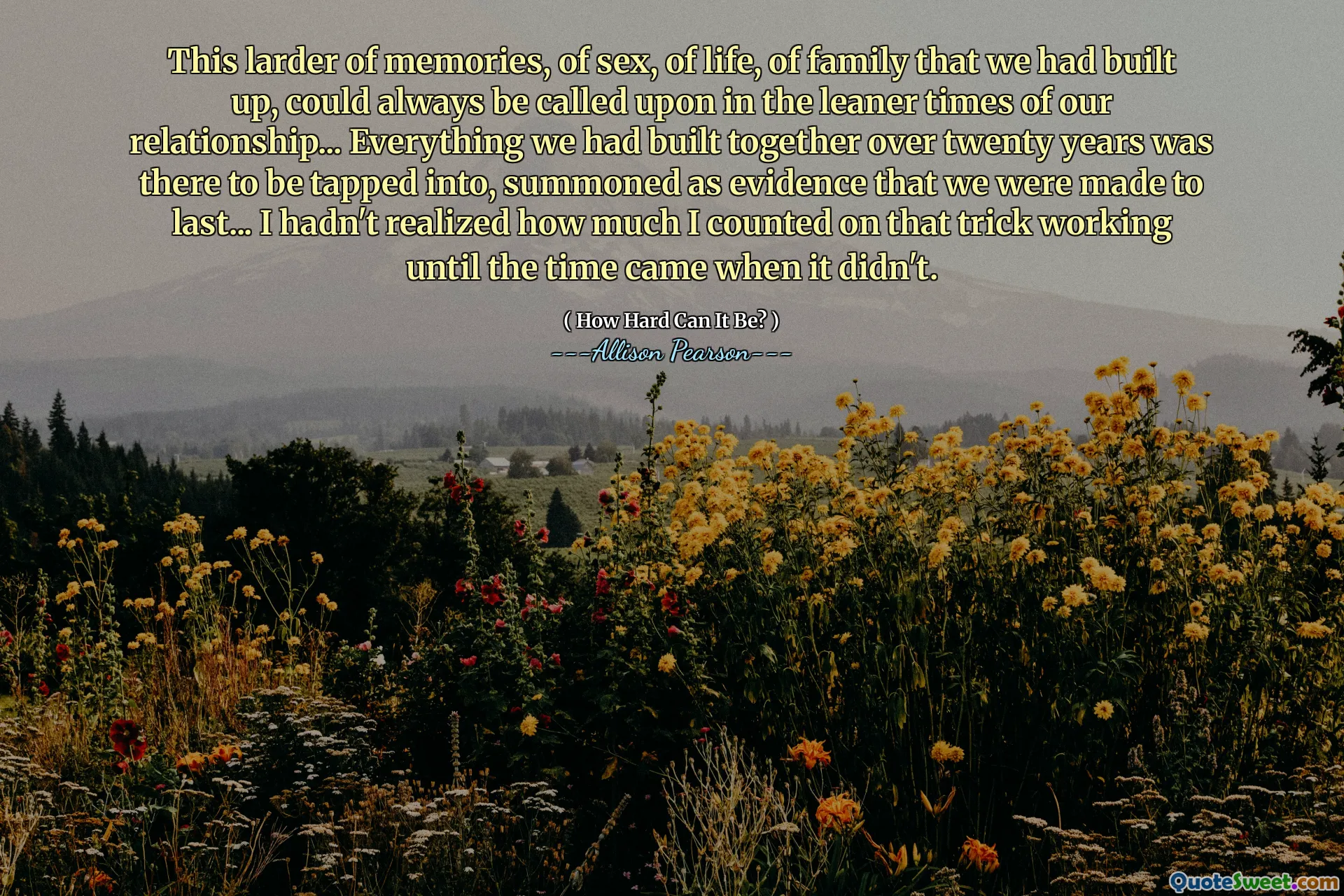
This larder of memories, of sex, of life, of family that we had built up, could always be called upon in the leaner times of our relationship... Everything we had built together over twenty years was there to be tapped into, summoned as evidence that we were made to last... I hadn't realized how much I counted on that trick working until the time came when it didn't.
The quote poignantly captures the emotional economy within long-term relationships, where shared history serves as sustenance during challenging periods. It's a vivid metaphor: a "larder" symbolizing a reserved store of memories and experiences that couples rely on when the relationship faces hardship. This analogy underscores how these recalled moments—of intimacy, daily life, family milestones—become more than memories; they are proof of endurance and connection.
The passage reflects on the comfort derived from believing that the foundation laid over two decades guarantees resilience. Yet, it also exposes a fragile dependence—recognizing that this "trick" of drawing strength from past experiences may eventually fail. This realism resonates deeply as it acknowledges that love and relationships require ongoing nourishment, not just recollection. The almost wistful tone reveals a painful awakening: that the storehouse of memories, once a reliable refuge, might be insufficient to overcome current difficulties.
Overall, this quote beautifully articulates the intersection of hope, nostalgia, and vulnerability in long-term partnerships. It invites readers to consider how relationships depend not only on the past but on present actions and mutual effort to thrive. It challenges the comforting myth that history alone can guarantee the future, encouraging a deeper appreciation for the continuous work and presence necessary to sustain love over time.






